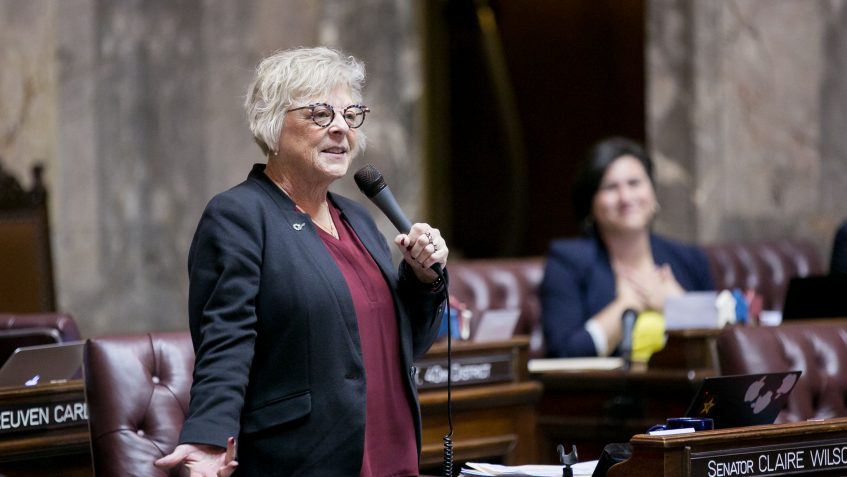Science-based, comprehensive sexuality health education would become a required component of public school curriculums, under legislation passed today by the Senate on a 28-21 vote.
“People call this sex education, but it’s about much more than sex,” said Sen. Claire Wilson (D-Auburn), the bill’s sponsor. “It’s about personal health, it’s about important life decisions, it’s about medical and economic consequences — all the things we want our young scholars to understand so that they can make the best choices for their health and their future.”
Senate Bill 5395 would require public schools to provide evidence-based, sexual health education curricula from a list developed by the state Office of the Superintendent of Public Instruction (OSPI) or from other sources that satisfy OSPI guidelines.
Among other things, the curricula must:
- encourage healthy relationships based on mutual respect and free from violence, coercion, and intimidation;
- teach how to identify and respond to sexually violent attitudes or behaviors; and
- emphasize the importance of affirmative consent before engaging in sexual activity.
“Many students are sexually assaulted or coerced into having sex, or find themselves in abusive relationships,” said Sen. Lisa Wellman (D-Mercer Island), who chairs the Senate Early Learning & K-12 Education Committee. “At its core, this bill is about safety. It’s about making sure that students have a safe place to ask questions, fully understand consent, and have the information they need to make safe decisions.”
Wilson, who is vice chair of the committee, said the curriculum does not direct teachers to instruct students on how to have sex, as has been incorrectly alleged by some; to the contrary, it is proven to reduce unintended pregnancy and STDs.
“The overwhelming majority of Americans, including parents and young people themselves, believe students should have access to comprehensive sexuality health education in middle school and high school and developmentally,” Wilson said. “Information is power. It’s time we do a better job of sharing it.”
SB 5395 would require schools to provide comprehensive sexual health education to students in grades 6-12 by Sept. 1, 2020, and to students in grades K-5 by Sept. 1, 2021.
Having passed the Senate, SB 5395 now goes to the House for consideration in that chamber.

